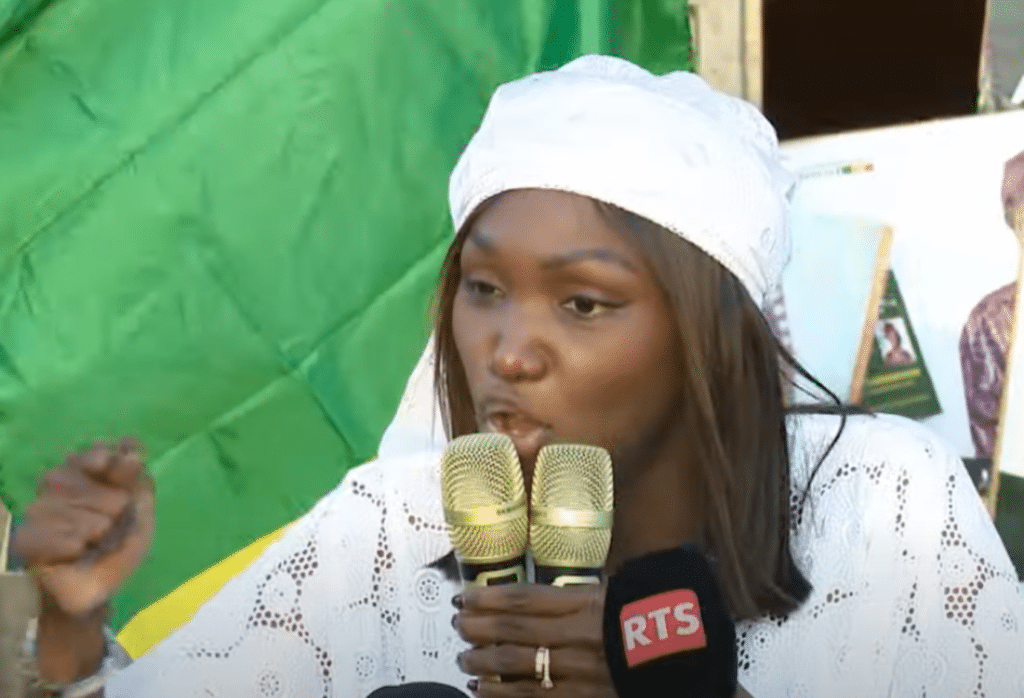This Sunday, Senegal is heading to the polls to elect its new president. After his 12-year reign, current President Macky Sall is expecting to step down. The only female presidential candidate at this election is 40-year-old business executive and entrepreneur Anta Babacar Ngom — who has run a campaign focusing on job creation, improving the economy and supporting the financial independence of vulnerable groups, especially women.
She was one of only six women among a total of 93 presidential hopefuls who sought to become candidates for the country’s top job, and the first female candidate to run for president in over ten years.
Earlier this month, Ngom announced her plans to establish a national women’s bank to help women gain economic independence.
“As the only female presidential candidate, I represent Senegalese women,” she told Turkey’s Anadolu Agency. “We’ve had women lawmakers, ministers, and even a prime minister. Moreover, Islam supports women in this regard. So why not have a woman president?”
“For the first time, a woman managed to gather enough signatures. We need to reflect on why women have not been able to participate sufficiently in the presidential candidacy process. We must make the candidacy system more fair and inclusive.”
Speaking to The Associated Press this week, Ngom said many young girls she meets ask for her support.
“They do so because they know that when a woman comes to power, she will put an end to their suffering,” she said. “I’m not going to forget them.”
“It’s crucial to strike a balance between modern evolution and respect for our customs. Women must be able to express themselves without hindrance, while preserving our cultural identity and valuing the traditional values that have shaped our society.”
She described her country as having “enormous potential” and “natural resources… [that] can be developed.”
Though she is not expected to win, her candidacy alone is a source of inspiration for women and young people in the country of more than 18 million.
Activist and sociologist, Selly Ba told AP, “We don’t stand a chance in these elections. We have to be there, even if we don’t stand a chance. But it’s important that we have women candidates, women who are in the race.”
At a recent rally in support of Ngom, one activist expressed her despondency at the state of the country. Currently, roughly a third of young people are unemployed.
“Our children are dying at sea because of unemployment and job insecurity,” Aicha Ba said. “Unemployment is endemic. Women are tired.”
Former parliamentarian Bousso Sambe believes the introduction of the Gender Parity Law in 2010 (a law that required all political parties to introduce gender parity in electoral lists) — hasn’t really increased the number of female participation in politics.
“Women’s rights have evolved at the political level over the last 10 years and particularly since the gender parity law came into force,” she said.
Currently, women make up over 40 per cent of parliament — one of the highest representations in Africa.
Since 2017, Ngom has been CEO of Senegal’s largest poultry company, Sedima — which her father founded in 1988. In 2012, she had left her corporate employment to work on Sall’s election campaign, but said that the experience had left her disillusioned.
“[He was] supposed to be the first president born after independence, and the youth had a lot of confidence in him,” she said in an interview this week.
“I quit my job at that time to work on his campaign, and the day after he was elected, I returned to work … I had no ambition for political advancement. But today, I no longer recognise the candidate I supported back then.”
Sall sparked controversy last month when he attempted to postpone the election to December 15, sparking protests around the country. The Constitutional Council, Senegal’s top election authority, rejected the proposed rescheduling, ruling that the appeals were unconstitutional.


